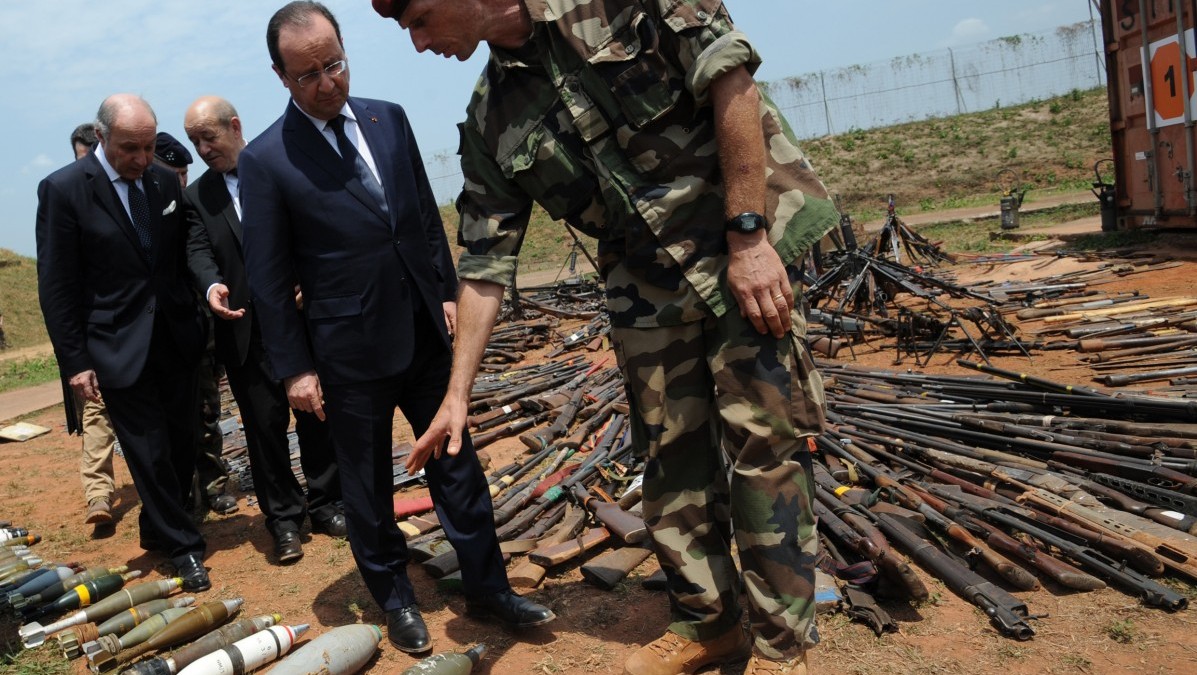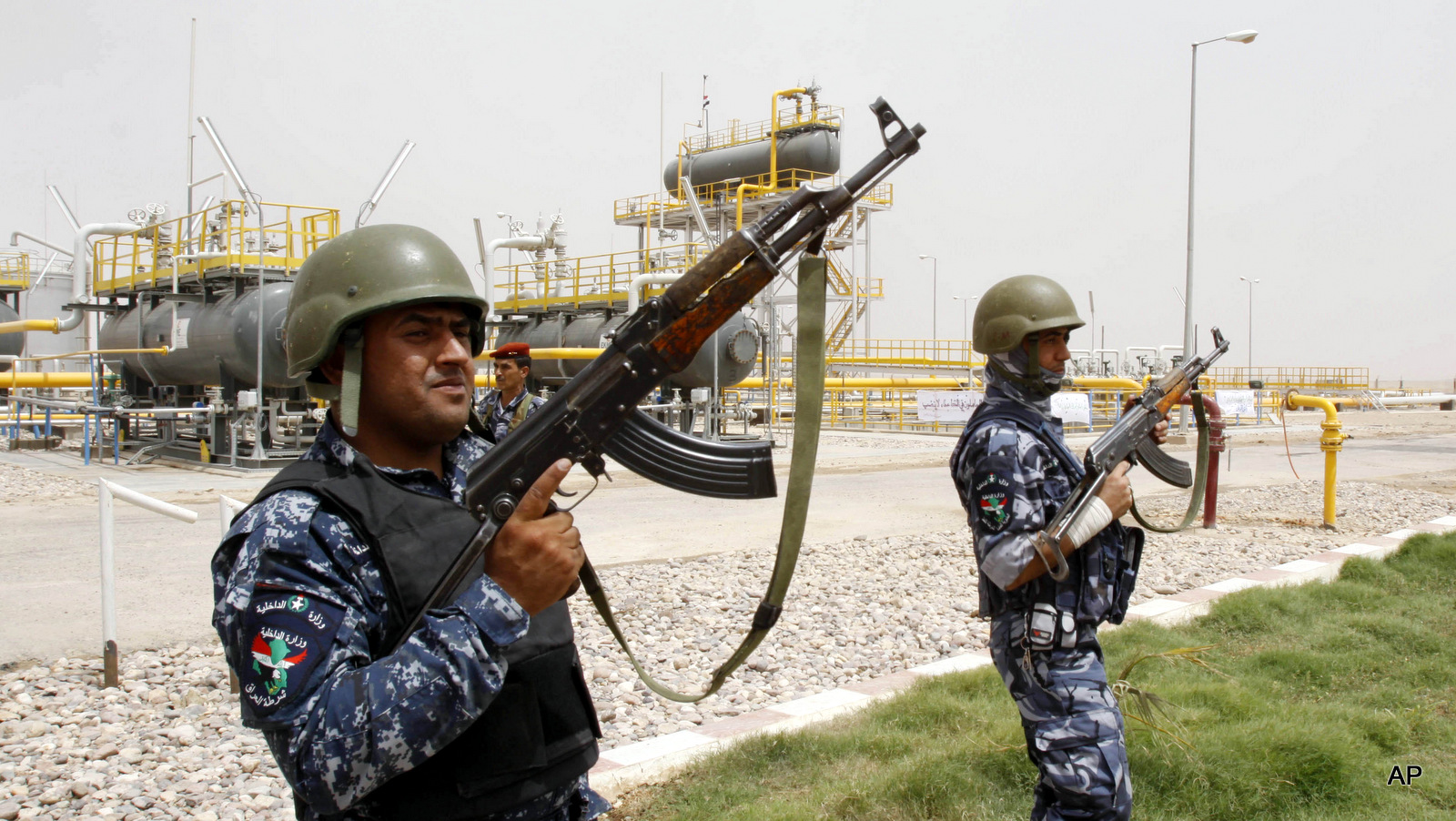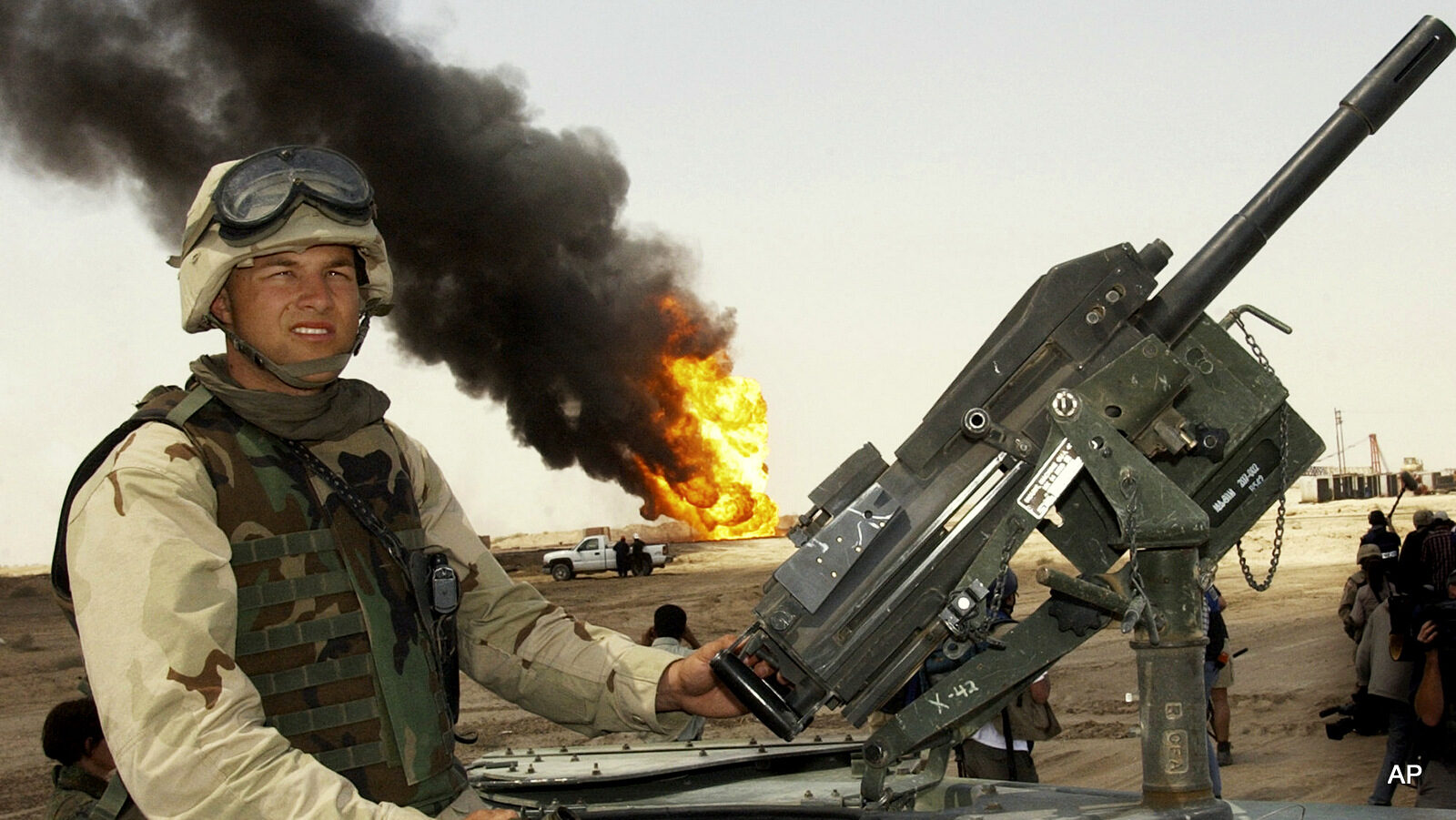Behind the seemingly ceaseless violence infecting the Middle East in countries such as Syria, Iraq and Libya, lies a simple motive: stabilizing gas and oil markets so powerful countries can feed the incessant demand of industries and enterprises which give those countries a competitive advantage in the world market.
There are myriad other reasons behind these conflicts, of course. Yet control of, and easy access to, hydrocarbon resources is one that is often alluded to, but not well explored.
“With statistical evidence, [we found] that you’re going to have more intervention in civil wars from countries that actually consume oil and import oil, and these effects will be stronger when oil-producing countries have a lot of market power,” said Petros G. Sekeris, from the Department of Economics at the University of Portsmouth, in an interview with MintPress News.
He was discussing his October 2014 study,”’Oil above Water’’: Economic Interdependence and Third-party Intervention,” which examined the economic incentives for third-party countries to intervene in civil wars. The report was also authored by Vincenzo Bove, who was affiliated with the Department of Government at the University of Essex at the time of the study, and Kristian Skrede Gleditsch, from the Department of Government at the University of Essex.
In a purely economic evaluation of the dominant form of war in the world – civil war – the authors found that third-party countries dependent on oil and gas imports, such as the United States, the United Kingdom and Russia, are more likely to intervene in a civil war if the country in conflict possesses oil or gas.
Syria and Libya offer prime examples to support this thesis, but the authors only evaluated civil wars that took place from 1945 to 1999.
Sekeris explained that if an oil-producing country enters into a civil war at a time when there are few oil producers, intervention is more likely to occur because the absence of that country from the oil market will likely drive up oil prices.
“It’s always market-driven, the reason,” he said. “It’s to maintain the oil prices at low levels, as low as possible.”
He continued: “When you have a civil war going on in an oil-producing country, that’s going to disrupt the market and reduce the supply of oil. As a consequence of which the price of oil will increase.”
“Just as we had the 1973, 1979 oil crises – they followed turmoil in the Middle East,” he explained.
Western intervention in Africa and the Middle East
According to the International Energy Agency (IEA), an organization created to help countries coordinate a collective response to major disruptions in the supply of oil, France relies heavily on imports of oil and gas, as it produces very little of its own. Petrochemicals are imported into the country from elsewhere in Europe, Russia, and Africa.
“[C]asual evidence suggest states with greater needs for oil dependence have been more likely to intervene in oil producing countries,” Sekeris and his team wrote in their report.
Indeed, Chad, Mali and Niger have all experienced civil wars on-and-off since gaining independence from France in 1960. France intervened numerous times in Chad in the 1970s and 1980s on the side of the government. This came despite the authoritative and dictatorial style of those governments. During those interventions, oil was known to exist in the country.
“By contrast, Niger has no natural resources, and the French displayed no interest in intervening in its civil war,” the report states.

In Mali, however, French interest has been mixed. In the early 1990s, Tuareg groups in Mali attempted to create their own state, which culminated in an insurgency that lasted five years. The French did not intervene in this conflict, and the country did not have any known oil reserves at the time.
Yet France did intervene in Mali in early 2013, after Tuareg groups moved to create an independent region known as Azawad in northern Mali. Oil extraction in Mali had picked up in the mid-2000s, several years prior to the outbreak of this war. The report states:
Although the key reason cited by France for intervening was to contain Islamic extremism, the incentives for intervention have arguably also increased with the presence of oil in the country and high oil prices.”
More than 10,000 United Nations troops are currently stationed in Mali.
The USA
The U.S. is especially sensitive to disruptions in the supply of natural gas and oil. According to the Congressional Budget Office, more than 80 percent of American energy comes from natural gas, oil or coal. The United Nations dataset on World Trade Flows explains that the U.S. has consistently been a net importer of oil since at least 1962.
Sekeris and his team wrote:
Consistent with this, we see recurrent US involvements in the civil wars and internal affairs of Angola from 1975 until the end of the Cold War. The United States was the country with the highest demand for oil during this period, and it was known from the 1970s that Angola had oil reserves. Oil in Angola was first discovered in 1955, and many US corporations, like Chevron, have been operating in the oil-rich Cabinda region for more than 50 years. The United States has also intervened in a number of other countries with proven large oil reserves, such as in Guatemala, Indonesia, and the Philippines over the period covered by our data set (1945–1999).”
As for the wars in Iraq starting in 1991 and 2003, the authors assert their belief that the U.S. got involved because American policy makers “considered the long-term threat to stability by an ascendant Iraq a greater threat than the immediate impact of the intervention.”
They note that oil prices “spiked” following the Iraqi invasion of Kuwait in 1990, but they again fell following the U.S. invasion of Iraq in 1991.

The authors speculate that the Americans believed prices would fall after the 2003 war. But prices didn’t drop. They wrote: “[W]e see little evidence to suggest that the US aggression against Iraq fundamentally undermines the logic of our arguments about how oil shapes incentives for intervention in civil wars.”
A recent example of a country toppled by a Western alliance, and one which clearly supports the thesis put forth by Sekeris’s team, is Libya, which was destroyed by NATO airpower in 2011.
Libya has the largest oil reserves in Africa. Similarly to French intervention in Mali in 2013, the stated reason for attacking the country was humanitarian. Indeed, Ivo H. Daalder, the U.S. Permanent Representative to NATO, and James G. Stavridis, the Supreme Allied Commander of Europe and Commander of the U.S. European Command, wrote, in Foreign Affairs following the fall of Libyan leader, Col. Moammar Gadhafi: “NATO’s operation in Libya has rightly been hailed as a model intervention.”
“The [NATO] alliance responded rapidly to a deteriorating situation that threatened hundreds of thousands of civilians rebelling against an oppressive regime. It succeeded in protecting those civilians and, ultimately, in providing the time and space necessary for local forces to overthrow Muammar al-Qaddafi,” they continued.
When asked about this Sekeris told MintPress: “Economic and geopolitical factors do influence military interventions.”
“What we claim in our paper is, of course, governments will not shout out loud they’re intervening to protect their commercial interests or to maintain low oil prices,” he explained. “So the alleged reasons for intervention will often be very different. [They] will be things the public opinion is more likely to accept.”
Regarding NATO’s 2011 intervention, Sekeris asserted:
Libya is a big oil producer. The Brits, the French, and the Italians had direct interest in the oil industry there amongst others, because their own oil companies were producing there. So there you would identify Libya as a clear example of an intervention for oil.”
The UK
The authors of “Oil above Water” also note how the U.K. got involved in Nigeria’s civil war, the Biafran war, between 1967 and 1970. At the time, the U.K. was one of the world’s largest importers of oil.
Exploration and exploitation of Nigerian oil began in the early 1900s, with all proceeds going to the British colonial government. After Nigeria gained its independence in 1960, Shell-British Petroleum continued to operate in the country, but other companies came in as well, including Mobil, Texaco and Gulf.
The authors note that the U.K.’s intervention in the Biafran war is often attributed to the fact that Nigeria had been a British colony. They counter, however, that the U.K. did not intervene in Sierra Leone and Rhodesia (now Zimbabwe) — countries that did not have oil.
Russia’s different route
The USSR intervened in the Biafran war from 1967 to 1968 as well, and in Indonesia in 1958 — both oil-related conflicts.
Following these interventions, OPEC proclaimed an oil embargo and cut production of oil in response to U.S. aid to Israel. This culminated in the 1973 oil crisis and higher oil prices on the world market. Irritated by this development, the USSR, a net importer of oil at the time, placed an embargo on Iraq in an attempt exert control over the country.
“Interestingly, subsequent Russian military interventions have mostly been unrelated to the presence of oil, in line with the Russian Federation gradually becoming a major oil (and gas) exporter,” Sekeris, Bove and Gleditsch note in their report.
The future
Sekeris told MintPress the price of oil has dropped considerably. Consequently, there is a decreased interest in military interventions in civil wars in places that have oil, such as Syria.
“There is a decreased interest [in Iraq],” he said. “It was monopolizing the news five, fix months ago, with ISIS going into Kobani, putting at risk the oil production in the Kurdish northern part of Iraq, and now the oil prices have dropped and we seem to have lost interest in that.”
To drive home his point, he hypothesized that if Saudi Arabia were to descend into civil war sometime in the future, he has no doubt that the West would intervene on the side of the Saudi government.
“That would heavily heavily disrupt the oil market,” he concluded.
Feature photo | In this April 1, 2003 file photo, a U.S. soldier stands guard on top of a humvee as oil workers work on oil well fires at Rumaila oil field, southern Iraq. Photo | AP


